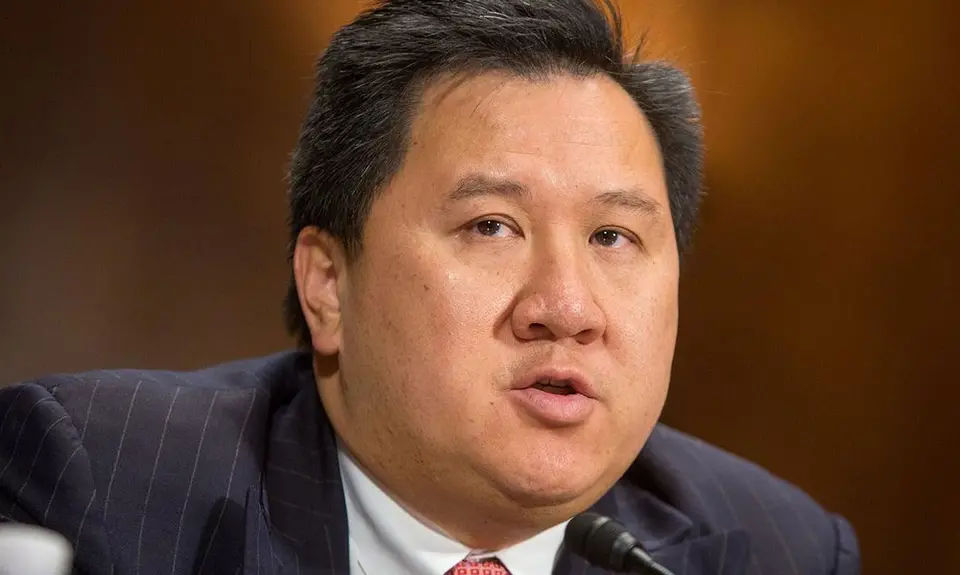“Confirmed Judges, Confirmed Fears” is a blog series documenting the harmful impact of President Trump’s judges on Americans’ rights and liberties. It includes judges nominated in both his first and second terms.
Fifth Circuit Trump Judge James Ho joined Donald Trump’s attack on a lower court judge who the president and his collaborators have targeted for impeachment. In March, Washington DC district court Judge James Boasberg temporarily halted Trump’s program of kidnapping targeted immigrants and sending them to what is essentially a concentration camp in El Salvador without giving them a chance to have their case heard by a judge.
Ho’s attack on Boasberg came in a concurrence in an unrelated April 2025 case called in re Gary Westcott. In that case, Ho wrote a 2-1 opinion joined by Trump judge Andrew Oldham that granted a writ of mandamus in a death penalty case in which George W. Bush judge Catherina Haynes dissented.
A case about the death penalty in Louisiana
The case before the Fifth Circuit involved Louisiana’s newly adopted protocol for executing people. In 2022, district court Judge Shelly Dick dismissed as moot a challenge to the death penalty because the state didn’t have access to the chemicals to carry it out. But then the state legislature changed the law and directed officials to use a new nitrogen hypoxia protocol. In February 2025, Louisiana began to schedule executions, and Judge Dick granted the plaintiffs’ request to reopen the case. State officials petitioned the Fifth Circuit to issue a writ of mandamus to direct Judge Dick to vacate her order to reopen the case.
The majority opinion (written by Ho and joined by fellow Trump judge Andrew Oldham) issued the writ. Catharina Haynes dissented. Among other things, she noted that mandamus is only available when there is no other remedy. In this case, there was a remedy, i.e. to let the regular appeals process play out. She also noted that Judge Dick had had a good reason to take the unusual step of reopening the case: “The circumstances do not get much more extraordinary than a district court ensuring that inmates with fast-approaching execution dates have access to the courts for their constitutional challenge to their executions.”
Ho uses his concurrence to attack Judge Boasberg
Ho chose to write a concurrence to his own opinion, attacking Judge Boasberg’s unrelated decision in the Venezuelan immigrants case. Ho responded to the dissent’s suggestion that the court should let the regular appellate process play out:
But that’s cold comfort to the millions of voters who took the time to participate in the democratic process, only to see their legitimate efforts unlawfully undone by a single district judge.
If a district judge abuses the legal process in a hurried effort to thwart the lawful political choices of the electorate, appellate courts are well within their right to intervene and grant emergency relief.
The Supreme Court did just that last week in Trump v. J.G.G. [citation removed]. There (as here), a district court presumed to seize control over a case of profound public interest that it had no lawful business deciding, because it belonged in another court. So the Supreme Court intervened and took the case away from the district court.
That’s the case where a Supreme Court majority ruled that Judge Boasberg hadn’t had jurisdiction to hear the cases of the Venezuelan immigrants who had been shipped to Texas en route to a concentration camp in El Salvador. Judge Ho went on:
The majority understood that waiting for an appeal in the “ordinary course” would inadequately protect the government from the indignity of litigating in the wrong proceeding—not to mention unduly delay the expressed will of the people.
When the government rounds up residents of our country so they can be sent to foreign concentration camp for torture and humiliation, according to Ho, it is the government’s dignity that we should be concerned about.
But even if concentration camps were “the expressed will of the people” from the November election – and they weren’t – that would not make the regime’s scheme any more legal. Even if plans to carry out an unconstitutional human rights violation were unambiguously approved in a referendum, it would still be an unconstitutional human rights violation. And it would still be the obligation of fair-minded judges to step in and stop it.
The decision by Trump judges Ho and Oldham is troubling enough. But Ho’s concurrence makes things even worse. The case illustrates the importance of our federal courts to our freedom and the significance of having fair-minded judges on the federal bench.
